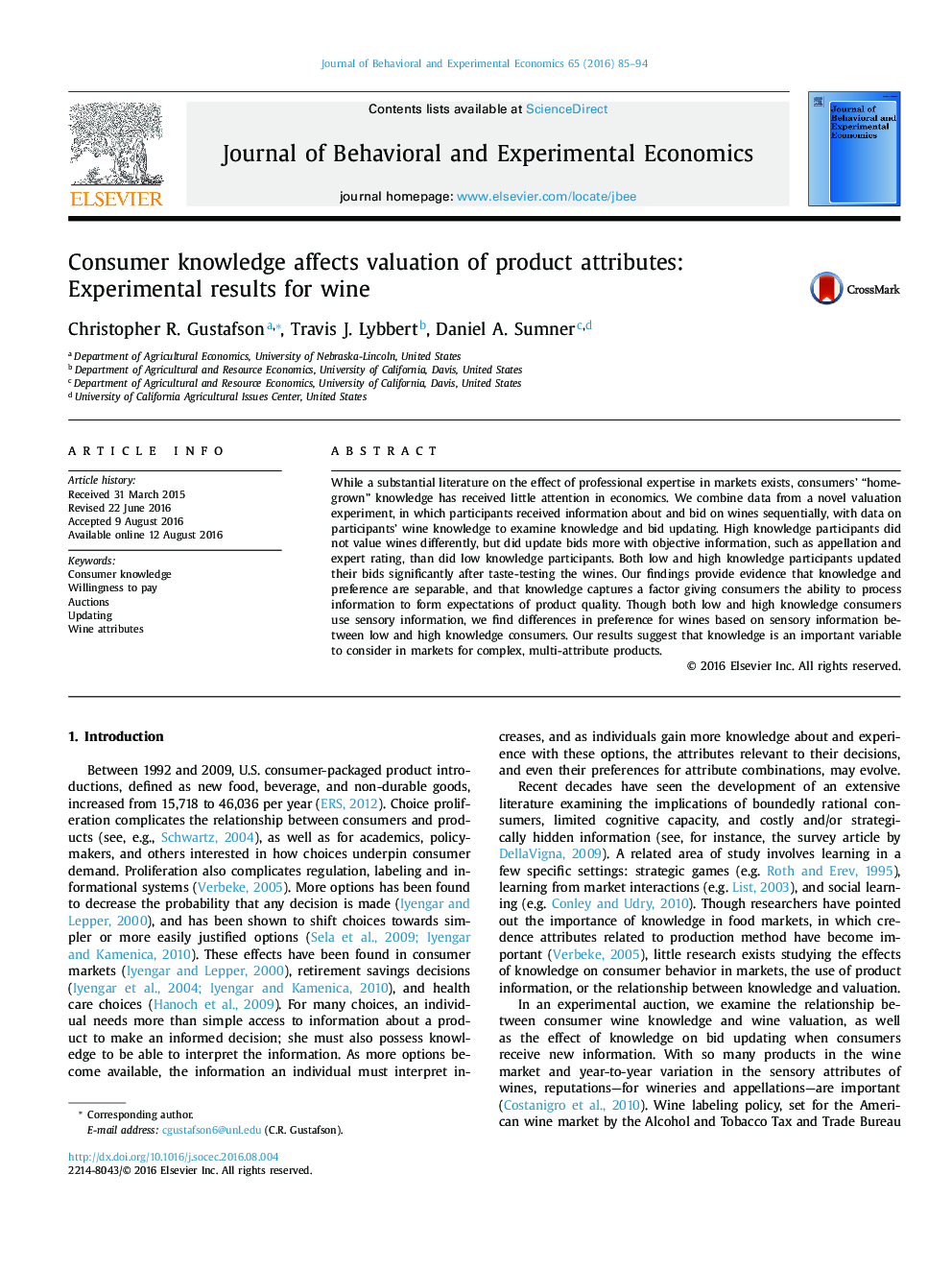| Article ID | Journal | Published Year | Pages | File Type |
|---|---|---|---|---|
| 5034165 | Journal of Behavioral and Experimental Economics | 2016 | 10 Pages |
â¢We study the role of consumer knowledge in the valuation of wine and wine attributes.â¢High knowledge consumers do not value wine more than low knowledge consumers.â¢High knowledge consumers update bids when receiving objective information much more than low knowledge.â¢Low knowledge consumers rate the least expensive wine significantly higher than high knowledge consumers.â¢Knowledge facilitates information use in choice.
While a substantial literature on the effect of professional expertise in markets exists, consumers' “homegrown” knowledge has received little attention in economics. We combine data from a novel valuation experiment, in which participants received information about and bid on wines sequentially, with data on participants' wine knowledge to examine knowledge and bid updating. High knowledge participants did not value wines differently, but did update bids more with objective information, such as appellation and expert rating, than did low knowledge participants. Both low and high knowledge participants updated their bids significantly after taste-testing the wines. Our findings provide evidence that knowledge and preference are separable, and that knowledge captures a factor giving consumers the ability to process information to form expectations of product quality. Though both low and high knowledge consumers use sensory information, we find differences in preference for wines based on sensory information between low and high knowledge consumers. Our results suggest that knowledge is an important variable to consider in markets for complex, multi-attribute products.
